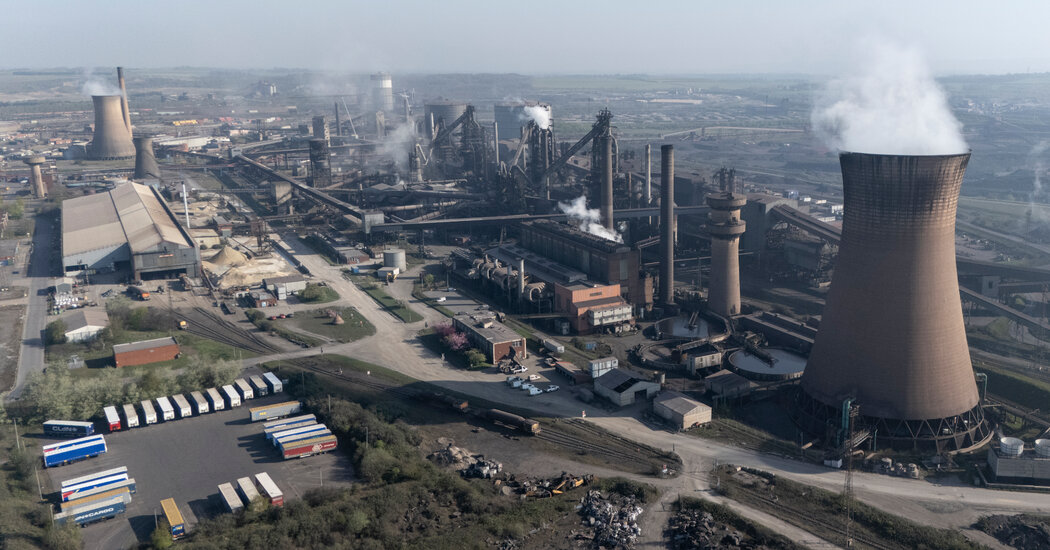Breaking News
British Government Takes Control of Country’s Last Major Steel Mill

Over the weekend, the British government took swift action to seize control of operations at the country’s last major crude steel production facility, a move that signals a potential shift towards nationalization of the plant.
Lawmakers were called back from their vacation to approve emergency legislation aimed at preventing the Chinese owners of the British Steel complex in Scunthorpe, Jingye, from unilaterally closing the blast furnaces and putting 2,700 jobs at risk.
Jonathan Reynolds, the business and trade secretary, emphasized the importance of steel to Britain’s industrial strength, security, and global standing as he introduced the legislation in Parliament.
While efforts are being made to preserve steel production in the UK, the industry has been declining for years. High energy costs, competition from China, and recent tariffs imposed by President Trump have all added to the challenges faced by British steel manufacturers.
Despite the government’s claim that it is not nationalizing British Steel, it is taking control of the board and management and is expected to shoulder the running costs of the plant.
Critics argue that these actions are effectively a form of nationalization, with concerns raised about the financial sustainability of the business.
The government’s goal is to find a partner to invest in a more environmentally friendly steel-making process, but the opposition warns of a “botched nationalization plan.”
Prime Minister Keir Starmer’s decision to intervene is seen as a move to protect jobs and retain domestic steel-making capabilities in the face of global economic uncertainties.
The Scunthorpe plant plays a crucial role in Britain’s steel industry, with the last remaining blast furnaces in the country. Pressure to keep the plant operational has intensified following shifts in US policy and the closure of other steel mills in the UK.
Maintaining domestic steel production is seen as essential for national security and economic stability, especially in a time of rising economic nationalism.
The government’s stance on protecting manufacturing at home reflects the importance of safeguarding vital industries in the face of global challenges.
Efforts to transition to greener steel-making technologies face financial hurdles, with government support being a point of contention between the authorities and the plant owners.
The future of steel production in Britain hangs in the balance as stakeholders navigate the complexities of modernizing the industry while preserving jobs and economic stability.
The standoff between the government and British Steel underscores the challenges of balancing economic interests, environmental concerns, and national security in a rapidly changing global landscape.
Eshe Nelson contributed reporting.
-

 Destination9 months ago
Destination9 months agoSingapore Airlines CEO set to join board of Air India, BA News, BA
-

 Breaking News10 months ago
Breaking News10 months agoCroatia to reintroduce compulsory military draft as regional tensions soar
-

 Gadgets4 months ago
Gadgets4 months agoSupernatural Season 16 Revival News, Cast, Plot and Release Date
-

 Tech News1 year ago
Tech News1 year agoBangladeshi police agents accused of selling citizens’ personal information on Telegram
-

 Productivity12 months ago
Productivity12 months agoHow Your Contact Center Can Become A Customer Engagement Center
-

 Gadgets1 month ago
Gadgets1 month agoFallout Season 2 Potential Release Date, Cast, Plot and News
-

 Breaking News10 months ago
Breaking News10 months agoBangladesh crisis: Refaat Ahmed sworn in as Bangladesh’s new chief justice
-

 Toys1 year ago
Toys1 year ago15 of the Best Trike & Tricycles Mums Recommend






















